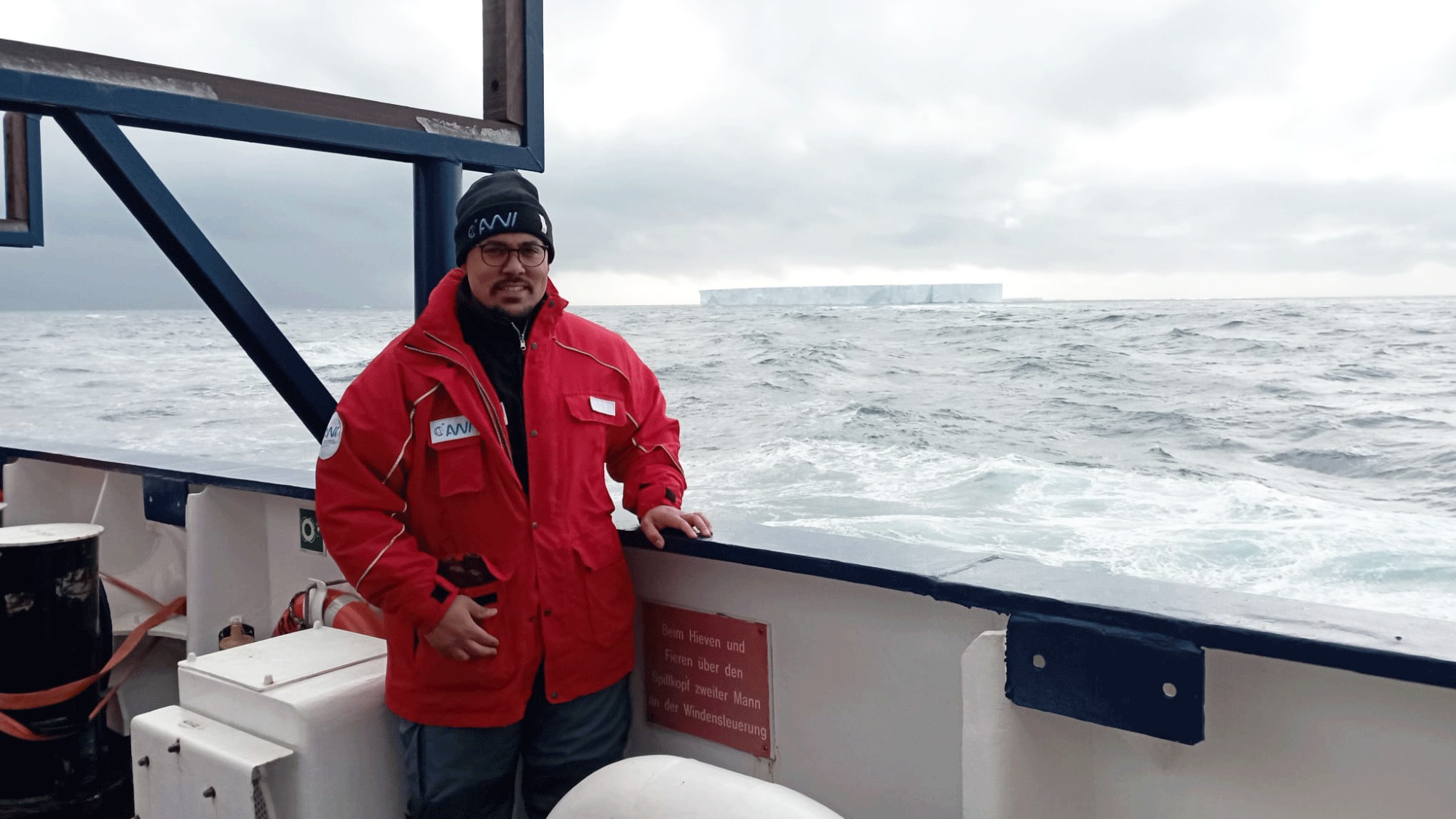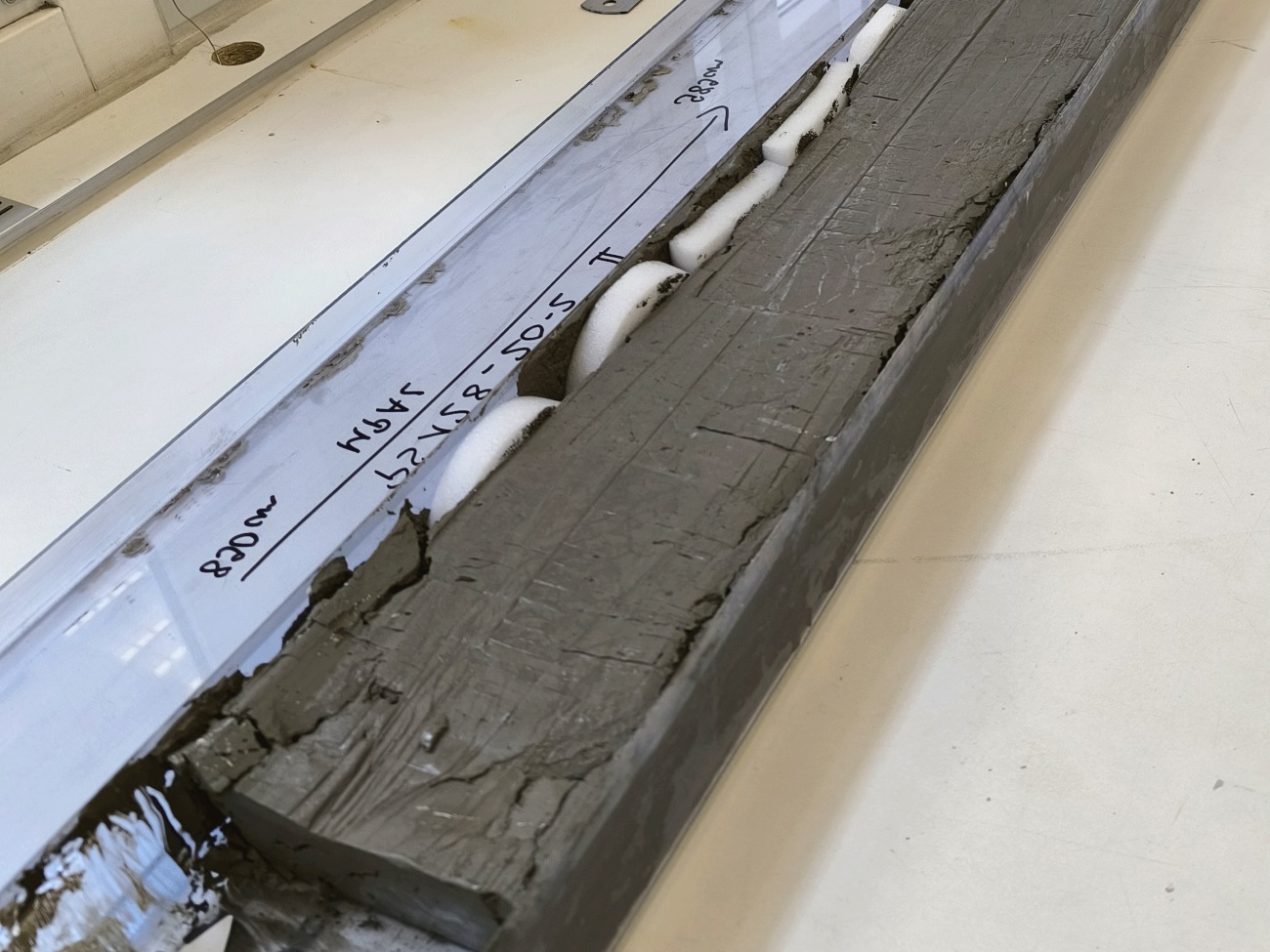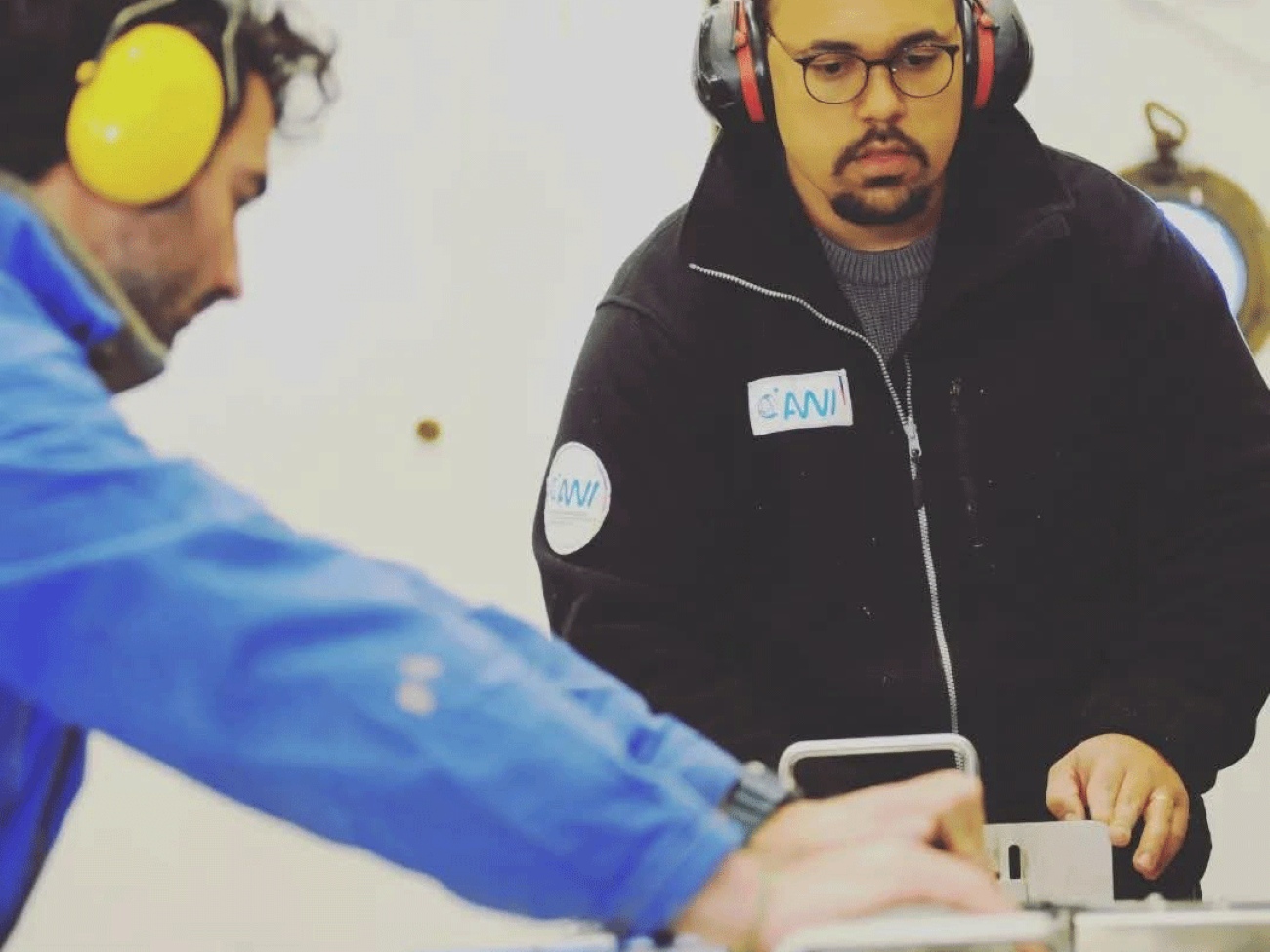
© Alejandro Cammareri / Alfred-Wegener-Institut
From Brazil to Bremen
Doctoral student Tainã Marcos Lima Pinho has been awarded the 2025 Bernd Rendel Prize. In this interview, he shares his fascinating journey from Brazil to Bremen
Can doing laundry be an enjoyable moment? For Tainã Marcos Lima Pinho, it certainly was. Just a few weeks ago, the 32-year-old doctoral student within Faculty 05: Geosciences at the University of Bremen was folding sweaters and pants when his phone suddenly pinged with a new email – and what an email it was! Tainã learned that he would receive the prestigious Bernd Rendel Prize from the German Research Foundation (DFG), which recognizes the quality and originality of young scientists’ research.
When you heard you had won the Bernd Rendel Prize, how did you feel?
I was so happy – and a little dizzy, too. I’m doing so many things at once in my scientific career that I don’t always stop to enjoy the moment. Winning this prize was a chance to pause and reflect. It’s a privileged, prestigious award and, for me, it’s incredibly important because I want to stay in Germany to do science. For the first time, a Brazilian researcher has been honored with this award, and my research department at AWI is also receiving it for the first time. The conditions for a scientific career are much better here than in Brazil, where I’m from. Plus, northern Germany, Bremen in particular, is the best place for this kind of geoscience. The next step is to finish my PhD in December. But first, I’m really looking forward to the official award ceremony in Göttingen this September.
The Bernd Rendel Prize is awarded to young researchers with promising careers. What has your career path looked like so far?
It’s been a bit unusual. I have a background as a chemistry technician and my undergraduate degree in Brazil was actually in environmental management and not geology. That might sound strange as they’re very different subjects. During university, I completed scientific internships and worked with researchers in paleoceanography and paleoclimatology. The group and my colleagues were crucial for me; The environment was supportive, and everyone was open to discussion. I loved that freedom, and of course, the research topics were fascinating.

© Alfred-Wegener-Institut
After discovering this field, you did a master’s degree, right?
Yes, at the University of São Paulo in Brazil. I worked with marine sediment cores – that’s material from the ocean floor – studying subtropical and tropical regions mainly along the Brazilian margin. Now, during my doctorate at the University of Bremen and the Alfred Wegener Institute in Bremerhaven, I’m working with the same research field (paleoceanography and paleoclimatology), but in a completely different place: Antarctica. So, I changed locations but not my research focus.
What exactly do you do in your research?
I work with climate archives to understand how the Earth’s climate system works. At the beginning of my PhD in October 2021, I traveled to Antarctica on the Polarstern research vessel. I collected sediment samples from the ocean floor – down to 3,000 meters deep. Those sediments hold a lot of information about past climate intervals and related processes. Looking back in time is important because some past climate conditions were very similar to those today – including the air, the average temperature, CO2 concentration, and sea level rise. By studying this specific location, we can uncover key processes that help us better understand the Earth’s climate system.

© Lester Lembke-Jene / Alfred-Wegener-Institut
When we returned to Germany, we started examining the collected material to see its potential. Throughout this phase, my supervisor’s support was essential. You are always reassessing, reevaluating and that takes time. As a doctoral student, you learn to stay calm. I’m happy to be involved in the entire process: collecting, measuring, interpreting, and communicating results. It’s exciting. I’m grateful to have experienced researchers by my side – science is teamwork.
How does supervision work during your doctoral studies? Are there fixed structures at the University of Bremen and AWI?
I frequently have lengthy one-on-one meetings with my main supervisor, Ralf Tiedemann. Besides that, there was a thesis advisory committee that met nearly every six months. We discussed my progress and any possible obstacles. Senior researchers support you – not just scientifically, but personally. They know how tough it is to do a PhD and look out for you, reminding you to take breaks when needed. You must take care of your mental health because you need to be fit and creative to do research. Additionally, my supervisors and co-supervisors meet every six months or so to set deadlines and discuss next steps. I’m very lucky to have my co-supervisors: Professors Gesine Mollenhauer, Gerrit Lohmann, and my main supervisor, Ralf Tiedemann, who are all from the University of Bremen.
What are your plans after finishing your doctorate?
I’d like to stay in northern Germany – Bremen to be exact. When it comes to paleooceanography and paleoclimatology, this region here is really special. I’m writing a postdoc proposal within a DFG priority program related to Antarctic and Arctic studies, aiming to start in July next year. Before that, I’m planning to go to Brazil – using the prize money – to learn about very new and promising research equipment. I want to try a new technique invented in Brazil and bring it to Germany. It’s innovative, pretty new, and most importantly, inexpensive for research purposes.
Do you have any advice for students considering a scientific career?
The most important thing inevitably is to publish a lot, to show you’re productive. But good publications require strong partnerships. So it is crucial to connect with people in your research community. Integrate yourself. Don’t hesitate to ask for help or ask “silly” questions. That’s all part of good science.